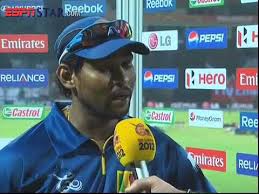


Posted December 30, 2015
The post-match interview can be a stressful time for elite sportspeople, particularly those who have never had any form of media training. The best way to master this is practice, but there are a few mistakes I see regularly that can easily be fixed.
 The first one is the assumption that this form of interview is strictly a Q and A with the reporter. You are best to answer questions, but only if you are comfortable doing so. In 99 percent of situations, you will be comfortable.
The first one is the assumption that this form of interview is strictly a Q and A with the reporter. You are best to answer questions, but only if you are comfortable doing so. In 99 percent of situations, you will be comfortable.
But if a difficult question comes your way, there are ways to avoid it. The key here is having something else to say that would be of interest to the audience of the reporter. Then you can use what we call in the industry, a bridging statement, and then move to the point you want to say.
Here’s an example.
Reporter: David hasn’t contributed much to the team lately. Do you think his spot might be under threat?
Sportsperson: David’s a great player, but what I was excited about today was how amazingly well John played in his 100th game for the team. Then say something about John’s game, or John’s career.
You can see how this can help you out of a difficult spot. It can also be used to get an important point across. You don’t have to wait for the reporter to ask that specific question.
Obviously there is very little time to prepare for these interviews, but by taking a deep breath after the game, it should only take a few seconds to come up with an interesting point to make. As long as the point is relevant, it could be anything. All the reporter wants is something interesting.
The second thing I see is players failing to look at the interviewer in the eye. Although it can seems unnatural, you need to maintain eye contact with the reporter throughout the interview. If you look down or look away, you can seem disinterested to the viewer at home.
Another thing to keep in mind is the use of your hands when talking to reporters. You express yourself with them in every other aspect of your life, so it’s important to maintain this when talking to the media. Those who don’t do this come across as monotone and uninterested. This is something most of my media training clients do at the beginning of workshops, but this changes as they do more and more mock interviews. Next time you see a post-match interview, look out for this. You’ll be surprised.
By following these points, you’ll improve your performance in post-match interviews. But remember that this is a practical skill that can only be mastered by practice. Good luck.
For more on my media training or crisis communication workshops, contact [email protected] or 029 200 8555.